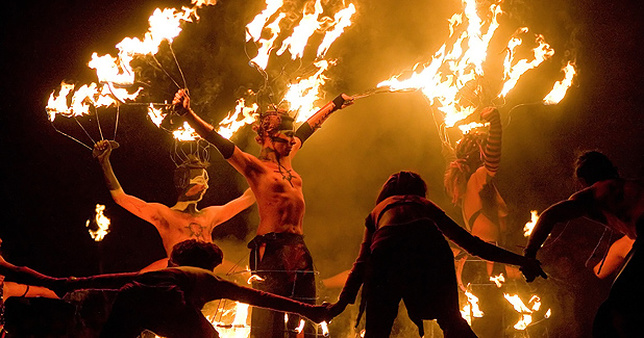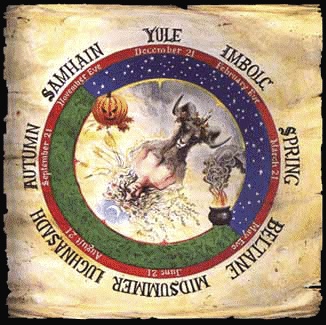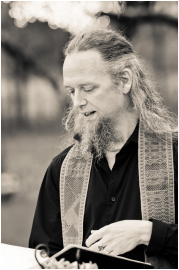
Or, May Day-After, if that's how you roll...
Purify, light a fire and pass yourself before it. Make ritual, create purpose, imbue meaning.
I am a Heliotheodactylolatrist (a worshipper of the fingers of the sun - Ole Surya), so I honor the Solar days; not only the Solstices and Equinoxes, but also the 'cross-quarter' days. In the eight-spoked (sound familiar) ring of the Year, there are eight total Solar Observances, many of which we still celebrate in some fashion.
May Day is one of these - the halfway point between Vernal Equinox and Summer Solstice. And, the international day of workers! With some help from my friends at the Wiki, here's some background on Beltane, or as I fancy the most simple translation, Bright Fire! And, as you read, give thanks and praise - be optimistic, allow that which has passed to pass, and look towards what you can create, tend, grow, and cultivate.
The Old Irish Bel(l)taine is derived from Common Celtic *belo-te(p)niâ, meaning "bright fire" (*belo- might be cognate with the English bale [as in 'bale-fire'] meaning 'white' or 'shining'; compare Anglo-Saxon bael, and Lithuanian/Latvian baltas/balts, found in the name of the Baltics - "Shining"). Think here also how Belarus gets translated as "White Russia"...
According to Dáithí Ó hÓgáin the term Céad Shamhain or Cétshamhainin means "first half", which he links to the Gaulish word samonios (which it is thought means "half a year") as in the end of the "first half" of the year that begins at Samhain (what we now call Halloween; originally the beginning of the Celtic year).

Fertility rituals were practiced, in part perhaps connecting with the waxing power of the sun. Historically, huge bonfires would mark this time of purification and transition, heralding in the season in the hope of a good harvest later in the year.
In many of the Gaelic traditions, on this day the village's cattle were driven between two bonfires to purify them and bring luck (Eadar dà theine Bhealltainn – 'between two fires of Beltane').
In Scotland, boughs of juniper were sometimes thrown on the fires to add an additional element of purification and blessing to the smoke. People would pass between the two fires to purify themselves. The bonfires were paired with ritual acts to protect the people from any harm from Otherworldly spirits; similar to the festival of Samhain (on 31 October antipodal to Beltane ), Beltane was also a time when the Otherworld was seen as particularly close at hand.
Then there’s the whole Maypole, or the decorating of bushes, ashes, hawthorns, and oaks – some of the sacred trees of the Gaelic culture. The decorating of trees, or the hanging of boughs on houses and in public places continued in the Gaelic diaspora and still has remnants occurring around the world.
Decorate a tree, light a small fire, bring a bough of something into your home, create space and let the light in - give thanks and praise!



